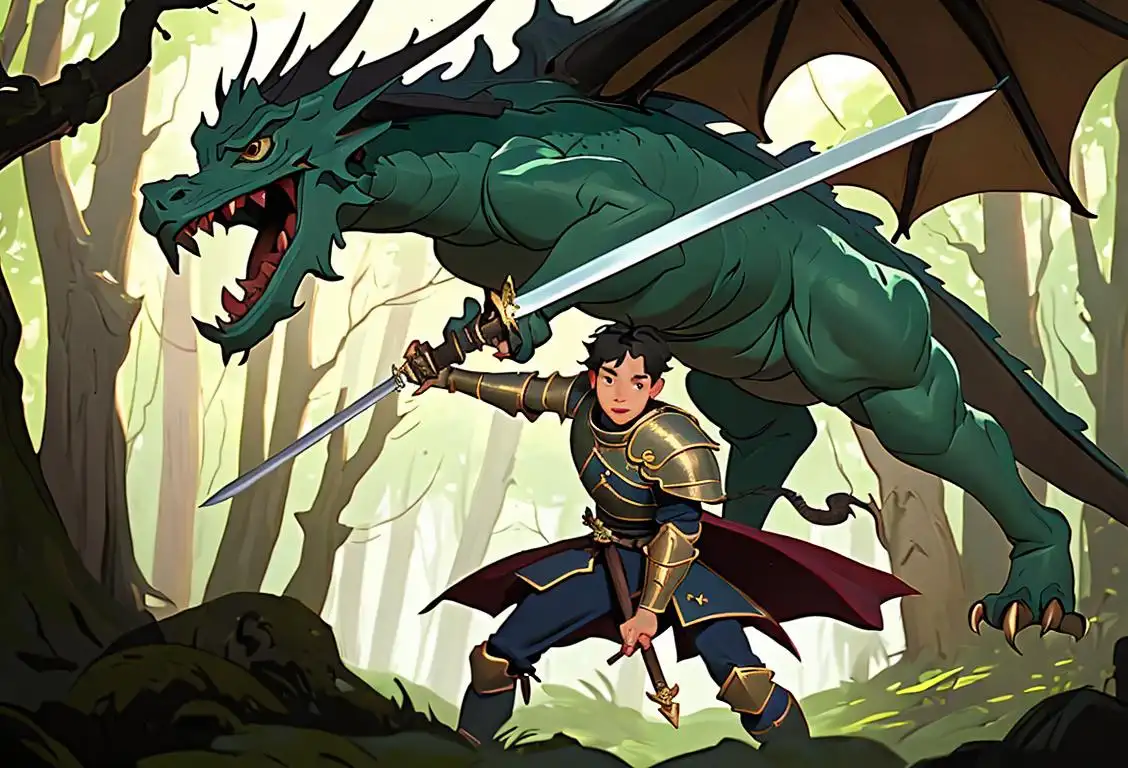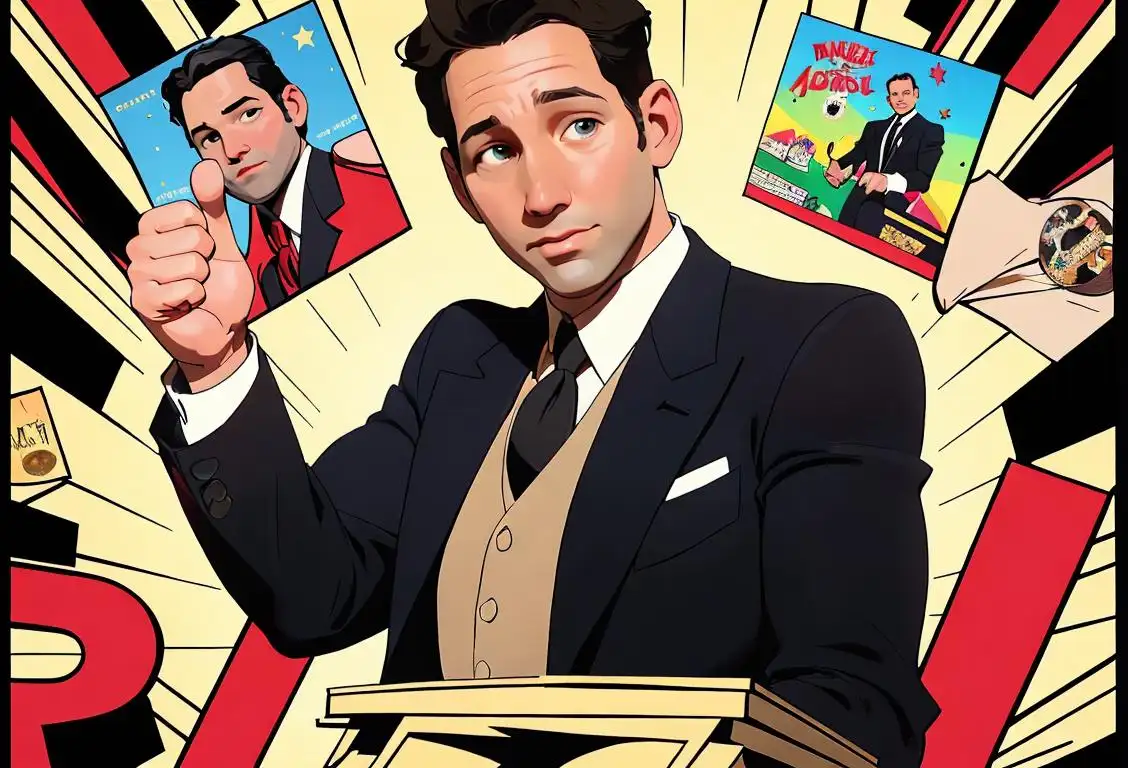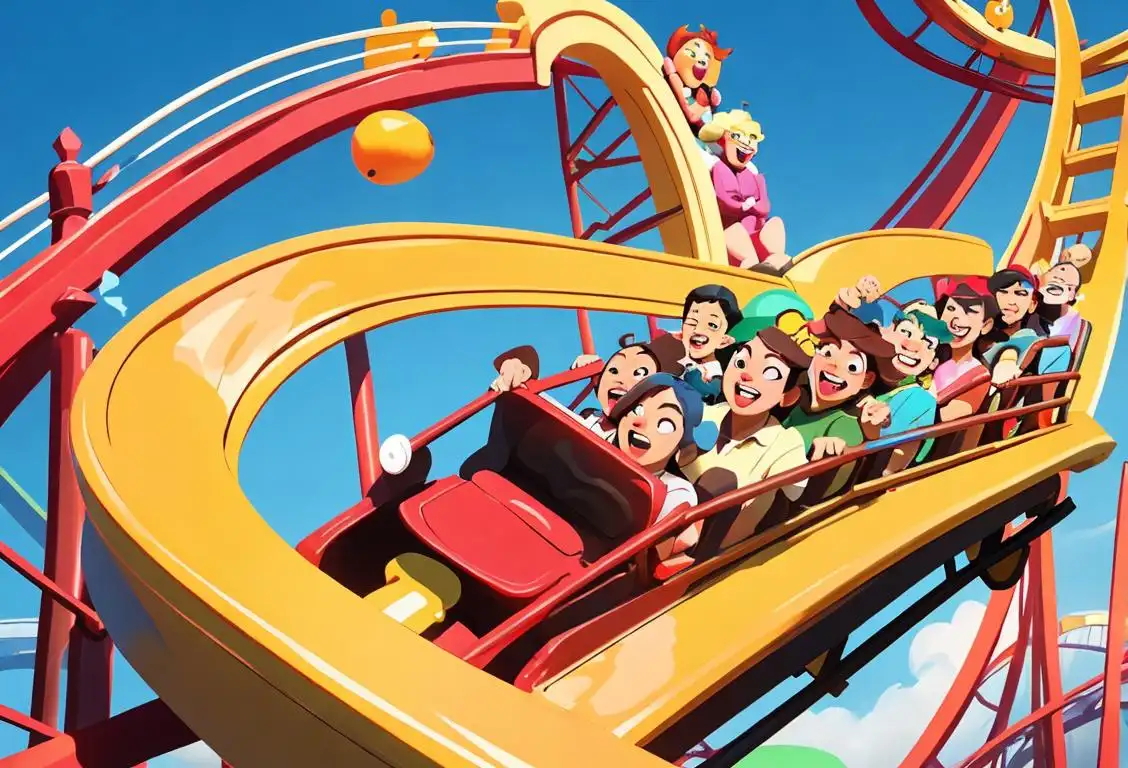National Dragon Day

Welcome to the enchanting world of National Dragon Day! Get ready to embark on a 'fire-breathing' adventure filled with mythical creatures, stunning tales, and a touch of magic. This extraordinary day celebrates the awe-inspiring dragons that have captured our imaginations for centuries. So, don your armor, grab your wizard's wand, and let's discover the legendary secrets of National Dragon Day!
When is Dragon Day?
It's national dragon day on the 17th January.
Dragon Dreams and Digital Dens:
Dragons have mesmerized people from all corners of the globe throughout history. From fearsome beasts in Western folklore to benevolent creatures in Eastern mythology, dragons have left an indelible mark on our cultural fabric. But did you know that National Dragon Day also has a fascinating internet history?
It all began when social media ignited with discussions about dragons back on January 17, 2021. People took to their keyboards to share their love for these majestic beings, sparking the birth of a modern-day celebration. Word spread like wildfire, and National Dragon Day became a trending topic, with 707 online mentions detected.
This viral trend symbolizes our enduring fascination with dragons and our desire to connect with others who share our love for these incredible creatures. The power of the internet allows us to celebrate National Dragon Day together, regardless of our geographical locations.
Unleashing Your Inner Dragon:
On National Dragon Day, let your imagination soar as you dive into a world where fire-breathing, scale-covered wonders exist. Explore the rich mythology and folklore surrounding dragons, from the legendary encounters of St. George to the wisdom of Chinese dragons. Unleash your creativity by drawing, writing stories, or even crafting dragon-inspired artwork!
For a geeky twist, gather your friends for a board game marathon featuring epic dragon-themed adventures. Or, embark on a movie marathon filled with iconic dragon films like "How to Train Your Dragon" and "The Hobbit." Remember, the possibilities are as vast as the dragon's realm itself!
An Unforgettable Encounter:
Did you know that, according to ancient legends, dragons hoarded vast amounts of treasure? So, in the spirit of National Dragon Day, why not embark on a quest for hidden riches? Organize a treasure hunt with your loved ones, complete with riddles, clues, and a spectacular dragon-inspired prize at the end. The thrill of the chase and the joy of discovery will make this a celebration to remember!
On National Dragon Day, let your dragon spirit ignite, and immerse yourself in a realm where legends come alive. Whether you're fascinated by the internet's history or intrigued by the real-world mythology surrounding dragons, there's something for everyone to enjoy on this fantastical day. So, embrace your inner dragon and let your imagination take flight!
History behind the term 'Dragon'
1100 BC
Ancient Origins
Dragons have a rich history that dates back to ancient civilizations. The term 'dragon' is derived from the Latin word 'draco', which means 'serpent' or 'huge serpent'. Ancient civilizations like the Mesopotamians and Egyptians believed in the existence of dragons, and portrayals of these mythical creatures can be found on artifacts and ancient texts.
4000 BCE
Ancient Origins
Dragons have been an integral part of mythology and folklore for thousands of years, with their origins dating back to ancient civilizations such as the Mesopotamians and the Greeks. In Mesopotamian myths, dragons were associated with chaos and represented the primordial forces of nature. The Greeks believed in the existence of dragon-like creatures called 'drakons,' which were often depicted as serpentine beasts with wings.
300 BCE
China's Majestic Dragon
One of the most iconic representations of dragons comes from ancient China. Chinese mythology portrays dragons as powerful and benevolent creatures associated with wisdom and good fortune. Dragons were believed to control the rain, rivers, and seas, and their image became deeply ingrained in Chinese culture. Emperors claimed to be the descendants of dragons, and intricate dragon designs adorned imperial palaces and courtly garments.
5th Century BC
Greek Mythology
Greek mythology played a significant role in shaping the perception of dragons. The ancient Greeks depicted dragons as fearsome creatures with serpent-like bodies and wings. One of the famous Greek dragons was the Hydra, a many-headed water serpent, encountered by the hero Hercules during his labors.
700 CE
European Folklore
During the medieval period in Europe, dragons took on a different persona. They were often depicted as fearsome beasts to be slayed by heroic knights. Stories of knights battling dragons became popular, symbolizing the triumph of good over evil. Dragon-slaying tales, such as the legend of Saint George and the Dragon, captivated the imaginations of people throughout Europe.
13th Century
European Folklore
During the Middle Ages, dragons became deeply ingrained in European folklore. Dragons were often portrayed as powerful and malevolent creatures that hoarded treasure and terrorized villages. Stories of heroic knights battling dragons, such as the legend of Saint George and the Dragon, captured the imagination of medieval Europe.
1800s
Dragons in Literature
The 19th century saw a resurgence of interest in dragons in literature. Authors like J.R.R. Tolkien and C.S. Lewis introduced dragons into their fantastical worlds, further popularizing these mythical creatures. Dragons took on diverse forms and personalities in literature, from the wise and ancient Smaug in 'The Hobbit' to the dangerous and cunning dragon in 'The Chronicles of Narnia.' This era laid the foundation for dragons becoming a staple in fantasy literature.
19th Century
Eastern Influence
In the 19th century, there was a surge of interest in Eastern culture, particularly Chinese mythology and folklore. This led to an increased fascination with dragons, especially in Western societies. The Chinese dragon, known for its long serpentine body and association with wisdom and good fortune, became a prominent symbol in art and literature.
20th Century
Dragons in Pop Culture
The 20th century witnessed dragons reaching new heights of popularity. They became a prominent feature in various forms of entertainment, including movies, video games, and television shows. The success of films like 'The NeverEnding Story' and the animated movie 'How to Train Your Dragon' brought dragons to a wider audience. Dragons continue to captivate the modern imagination, evolving from terrifying creatures to beloved and awe-inspiring beings.
20th Century
Pop Culture Phenomenon
Dragons continued to capture the popular imagination in the 20th century with the rise of fantasy literature and films. J.R.R. Tolkien's dragons in 'The Hobbit' and 'The Lord of the Rings' and the dragon Smaug became iconic examples of dragons in modern literature. Dragons also became popular characters in video games and animated films, further solidifying their place in pop culture.
Did you know?
Did you know that dragons have been portrayed in various forms across cultures, ranging from ferocious flying creatures to wise beings capable of granting wishes? Expand your dragon knowledge on National Dragon Day!Tagged
fun loved ones entertainmentFirst identified
26th August 2015Most mentioned on
17th January 2021Total mentions
707Other days
Paul Rudd Day
Head Ass Day
Theatre On Christmas Day
Tv Every Single Day
Television And Spontaneously Combust Day
Coaster Day
Best Dick Day
Agenda By Watching Tv All Day
Television Day
Awards Day







